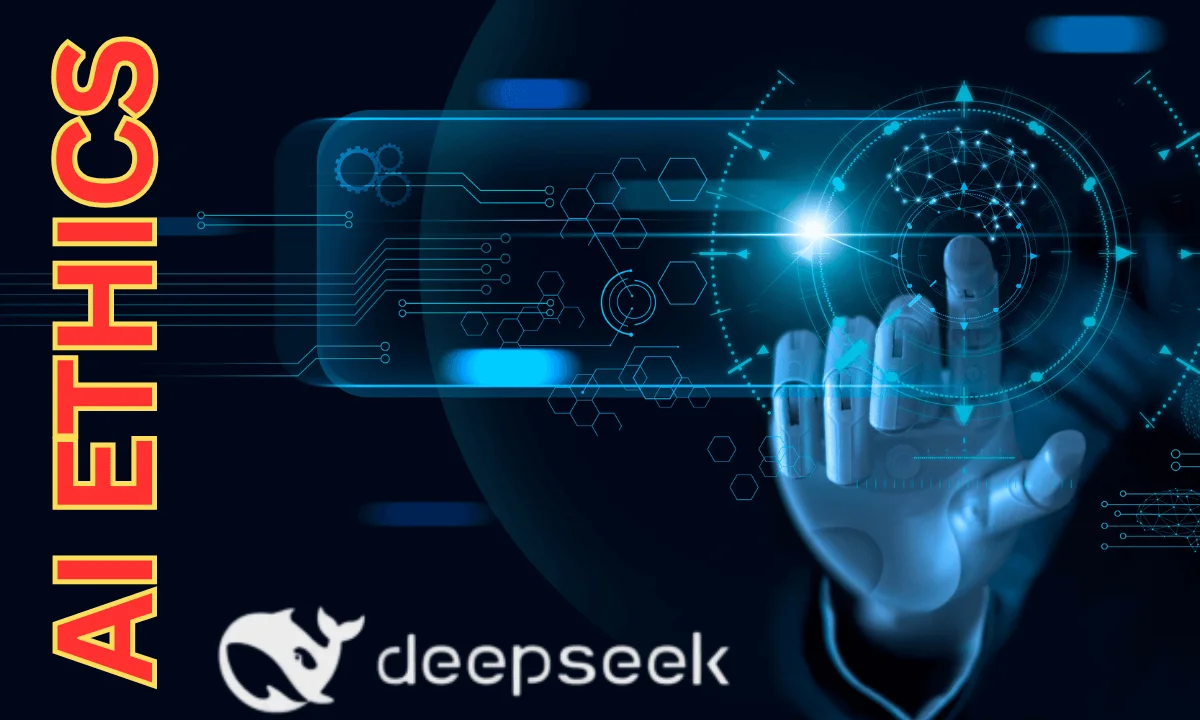AI Ethics: Balancing Innovation and Responsibility in Pakistan’s Tech Scene
Artificial Intelligence (AI) is no longer a futuristic concept; it is a present-day reality transforming industries, economies, and societies worldwide. Pakistan, like many other nations, is embracing AI to drive innovation, enhance productivity, and solve complex challenges. However, as the country’s tech scene rapidly evolves, the ethical implications of AI cannot be overlooked. Balancing innovation and responsibility is critical to ensuring that AI technologies are developed and deployed in a manner that benefits society while minimizing harm. This article explores the ethical challenges surrounding AI in Pakistan’s tech ecosystem and offers insights into how stakeholders can foster responsible AI innovation.
How DeepSeek AI is Democratizing Access to Machine Learning Tools
The Rise of AI in Pakistan’s Tech Scene
Pakistan’s tech industry has witnessed remarkable growth in recent years. With a young, tech-savvy population and increasing internet penetration, the country is becoming a hub for innovation. Startups, tech companies, and academic institutions are leveraging AI to address local challenges, such as healthcare accessibility, agricultural productivity, and financial inclusion. From AI-powered diagnostic tools to smart farming solutions, the potential of AI to drive socio-economic development is immense.
However, the rapid adoption of AI also raises ethical concerns. As AI systems become more integrated into daily life, questions about privacy, bias, accountability, and transparency come to the forefront. Without proper safeguards, AI technologies can exacerbate existing inequalities, infringe on individual rights, and create new risks for society.
Automating Daily Tasks: A Guide to AI for Busy Professionals
Key Ethical Challenges in AI Development
1. Data Privacy and Security
AI systems rely on vast amounts of data to function effectively. In Pakistan, where data protection laws are still in their infancy, the collection, storage, and use of personal data pose significant privacy risks. Unauthorized access to sensitive information, data breaches, and misuse of data for surveillance are pressing concerns. Ensuring that AI systems comply with data privacy regulations and ethical standards is essential to building public trust.
2. Bias and Discrimination
AI algorithms are only as good as the data they are trained on. If the training data contains biases, the AI system will likely perpetuate or even amplify those biases. In Pakistan, where societal inequalities based on gender, ethnicity, and socioeconomic status are prevalent, biased AI systems could reinforce discrimination. For example, an AI-powered hiring tool that favors certain demographics could exacerbate workplace inequality. Addressing bias in AI requires diverse and representative datasets, as well as rigorous testing to identify and mitigate discriminatory outcomes.
3. Accountability and Transparency
AI systems often operate as “black boxes,” making decisions that are difficult to understand or explain. This lack of transparency can lead to accountability issues, especially when AI-driven decisions have significant consequences, such as in healthcare, criminal justice, or financial services. In Pakistan, where regulatory frameworks for AI are still developing, ensuring accountability and transparency is crucial to preventing misuse and ensuring fair outcomes.
4. Job Displacement and Economic Inequality
While AI has the potential to create new opportunities, it also poses a threat to traditional jobs. In a country like Pakistan, where unemployment is already a challenge, the displacement of workers due to automation could widen economic inequality. Policymakers and industry leaders must consider the socio-economic impact of AI and implement strategies to reskill and upskill the workforce.
5. Ethical Use of AI in Surveillance
AI-powered surveillance technologies are increasingly being used for security and law enforcement purposes. While these tools can enhance public safety, they also raise concerns about mass surveillance, privacy violations, and the potential for abuse by authorities. Striking a balance between security and individual freedoms is a complex ethical dilemma that requires careful consideration.
The Role of Data in AI: Building Smarter Systems with DeepSeek
Strategies for Balancing Innovation and Responsibility
To harness the benefits of AI while addressing its ethical challenges, Pakistan’s tech ecosystem must adopt a proactive and collaborative approach. Here are some strategies to achieve this balance:
1. Developing Robust Regulatory Frameworks
Pakistan needs comprehensive regulations that govern the development and deployment of AI technologies. These regulations should address data privacy, algorithmic transparency, and accountability, ensuring that AI systems are used ethically and responsibly. Policymakers should engage with industry experts, academics, and civil society to create laws that are both effective and adaptable to technological advancements.
2. Promoting Ethical AI Education and Awareness
Educating developers, businesses, and the general public about AI ethics is crucial. Universities and training programs should incorporate ethics into their AI curricula, emphasizing the importance of fairness, transparency, and accountability. Public awareness campaigns can also help citizens understand their rights and the potential risks associated with AI.
3. Encouraging Diversity and Inclusion
Diverse teams are more likely to identify and address biases in AI systems. Encouraging gender and ethnic diversity in the tech industry can lead to more inclusive and equitable AI solutions. Additionally, involving marginalized communities in the design and testing of AI technologies can help ensure that their needs and perspectives are considered.
Natural Language Processing (NLP) Explained: DeepSeek AI’s Breakthroughs
4. Fostering Collaboration Between Stakeholders
Ethical AI development requires collaboration between government, industry, academia, and civil society. Multi-stakeholder initiatives can facilitate knowledge sharing, best practices, and the development of ethical guidelines. For example, Pakistan’s AI policy should be informed by input from a wide range of stakeholders to ensure that it addresses the needs and concerns of all segments of society.
5. Implementing Ethical AI Principles
Tech companies and organizations should adopt ethical AI principles that guide their development and deployment processes. These principles should include commitments to fairness, transparency, accountability, and respect for human rights. By embedding ethics into their operations, organizations can build trust and demonstrate their commitment to responsible innovation.
6. Investing in AI for Social Good
AI has the potential to address some of Pakistan’s most pressing challenges, such as poverty, healthcare, and education. By prioritizing AI applications that promote social good, stakeholders can ensure that the benefits of AI are widely distributed. For example, AI-powered telemedicine platforms can improve healthcare access in rural areas, while AI-driven educational tools can enhance learning outcomes for underserved communities.
Top 10 Free AI Courses for Aspiring Pakistani Developers
The Role of International Collaboration
Pakistan can also learn from global best practices and collaborate with international organizations to address AI ethics. Partnerships with global tech companies, research institutions, and multilateral organizations can provide access to expertise, resources, and funding. By participating in international dialogues on AI ethics, Pakistan can contribute to the development of global standards and frameworks that promote responsible AI innovation.
5 AI Tools Every Pakistani Developer Should Master in 2025
Conclusion
AI holds immense promise for Pakistan’s tech scene, offering opportunities to drive innovation, boost economic growth, and improve quality of life. However, realizing this potential requires a careful balance between innovation and responsibility. By addressing ethical challenges such as data privacy, bias, accountability, and job displacement, Pakistan can build a tech ecosystem that is both innovative and equitable. Through robust regulations, education, collaboration, and a commitment to ethical principles, Pakistan can position itself as a leader in responsible AI development, setting an example for other nations to follow.
As the country continues its journey toward digital transformation, the ethical use of AI must remain a top priority. By fostering a culture of responsibility and inclusivity, Pakistan can ensure that AI technologies serve the greater good, empowering individuals and communities while safeguarding their rights and dignity. The future of AI in Pakistan is bright, but only if it is guided by a strong ethical compass.







